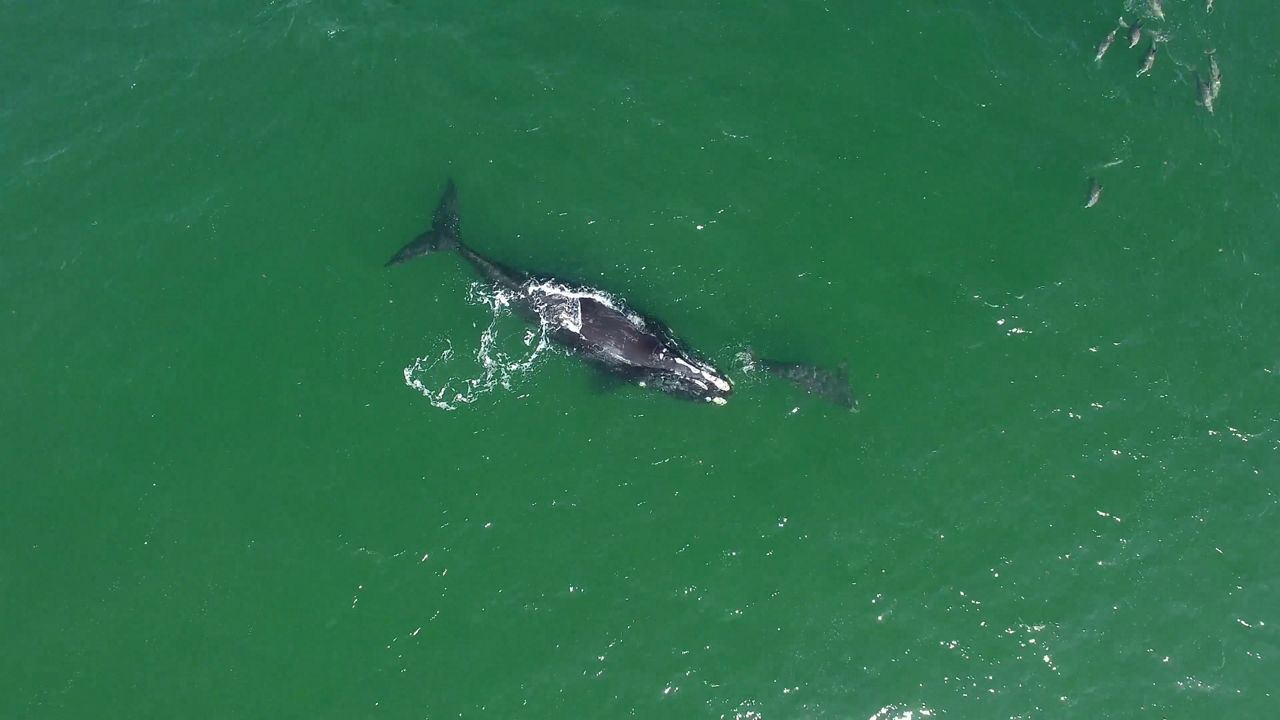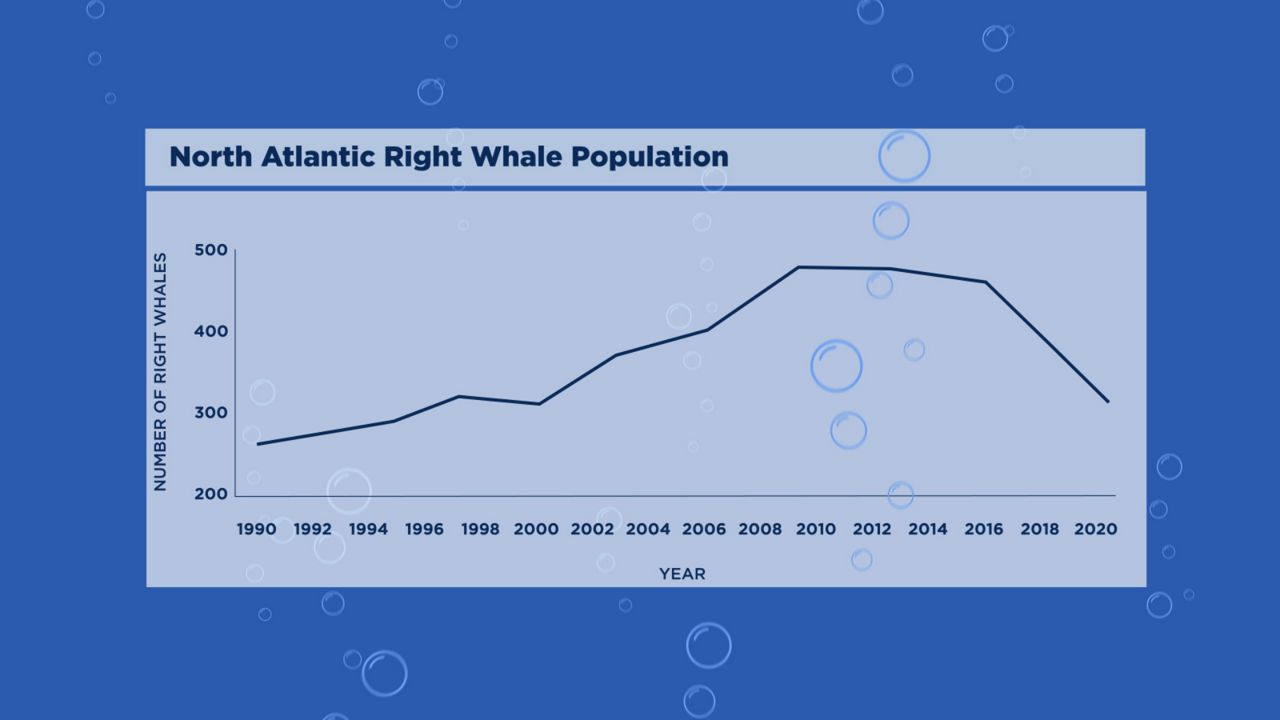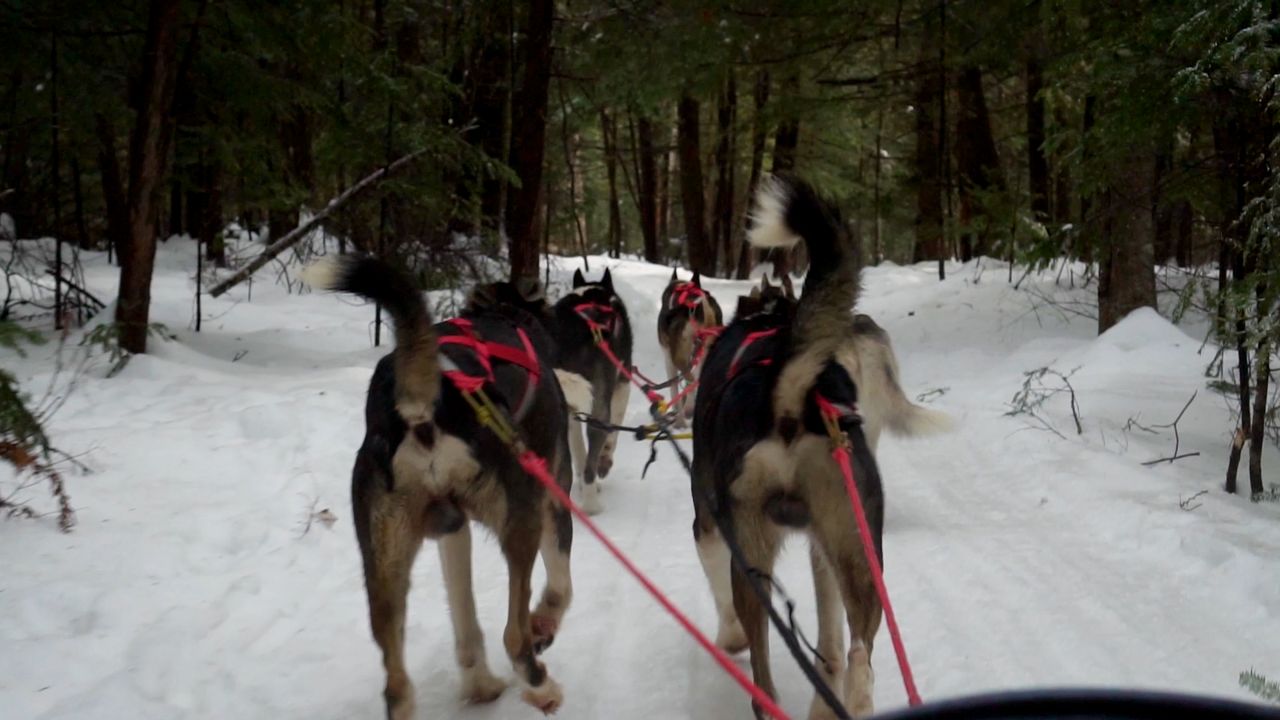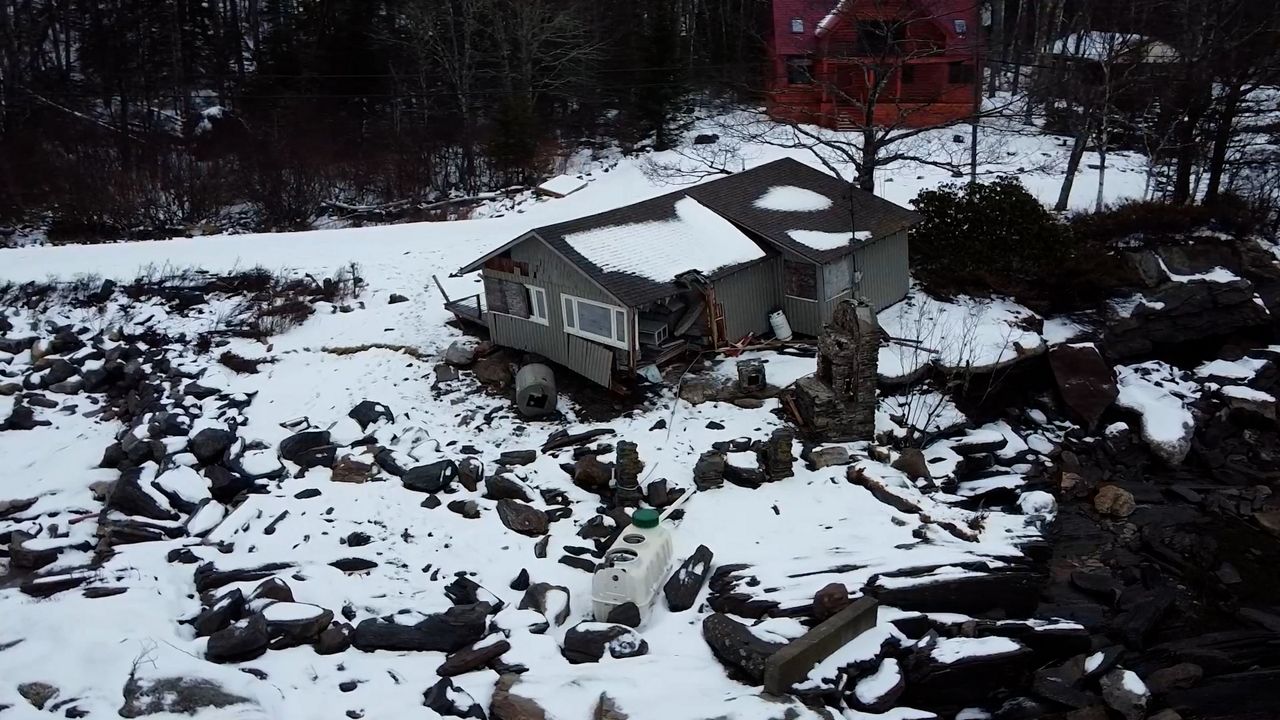If you’ve ever eaten lobster, there’s a good chance it came from Maine. The state harvests around one hundred million pounds a year.
The lobster fishing industry has long been a pillar of Maine’s economy, but now lobstermen are worried that efforts to protect another aquatic species from extinction could endanger their own livelihoods.
What You Need To Know
- Conservationists say stricter fishing regulations are needed to protect endangered right whales in Maine
- Lobstermen worry more regulations could put them out of business
- An appeals court recently sided with lobstermen, saying the data did not support the proposed regulations
On a cold morning in January, Chris Welch is already out preparing his boat. This time of year, his days begin before sunrise. It’s a ritual he’s grown accustomed to — at just 35 years old, he’s already spent decades working in the lobster business.
“I started lobstering when I was six.” Welch said.

Being a lobsterman in Maine is less of a job and more of a lifestyle. It’s a family business for many, including Welch, whose learned the ropes from his grandfather.
But recently, the focus is less on what lobstermen’s ropes are pulling up and more on what may be running into them.
An hour and half drive from Kennebunkport, scientists at the New England Aquarium are trying to keep alive an animal too big to fit in a tank.

“The adult could be up to 50 ft long,” said Amy Knowlton, a senior scientist at the aquarium.
Fishing almost brought the North Atlantic right whale to extinction before 1935 when hunting was banned.
While the right whale population did see a slow rebound after 1990, population estimates plummeted in 2017. The latest tally finds just 356 right whales in existence today.

Scientists say the whales are experiencing an “unusual mortality event.” Human causes, they say, are a big contributing factor— most notably ship strikes and entanglements with ropes used for the fishing of lobster.
“As soon as they hit that rope, they’ll start to roll. They’ll start to thrash. That attached gear and rope will lead to severe, deep injuries that will ultimately lead to their death,” explained Knowlton.
Maine lobstermen use ropes that break apart if a whale were to run into them. But the federal government has proposed changes that would eliminate traditional line fishing in certain areas and adopt what’s known as “on-demand” or “ropeless” gear.
Lobstermen in Maine say there’s no data showing their equipment has resulted in whales dying, and they fear the new technology could mean the end of the Maine lobster industry.
“On demand gear has a time and place,” said Patrice McCarron, the policy director for the Maine Lobstermen’s Association.
“Our fishermen who are in state waters only, it’s very improbable that they’re going to need to be using on-demand gear. And the business model for that would not be very advantageous for their small boats.”
McCarron says the added costs could put many Maine lobstermen out of a job.
Welch says he tried using the ropeless gear for two years before giving it back.
“I gave it back because I said, listen, it works great if I go up on a nice day, push the button and want to retrieve it. If it’s a rough and bad weather and it’s cold, things don’t work as they’re supposed to,” he said.
It’s a tug of war over rope usage as both sides search for a solution.
Knowlton says she understands the lobstermen’s fears over the future of their industry.
“We can continue to work with the industries that are being affected by potential changes and help them engage and embrace the idea of using a different kind of gear,” she said.
A federal appeals court recently sided with the fishermen, saying the proposed restrictions on Maine lobstermen were not supported by the data. Recent legislation passed by Congress, pauses new federal fishing regulations for another five years.
Despite these limitations, the National Oceanic and Atmospheric Administration — the organization responsible for the regulations — said in a statement that they are committed to “protecting and recovering North Atlantic right whales through conservation, regulatory, rescue, and enforcement measures.”
Still, a crossroads remains for a sacred industry and a species on the brink of disappearing.
“[Right whales] could go extinct if we don't start putting in measures that could reduce the risk that they're facing from these human activities,” said Knowlton.
“I really think there’s a lot of things changing, and there’s a lot of things that are going to make it hard to stay in this business for 30 years,” Welch said. “And when I have had the conversation with my wife about what I would do differently, I haven’t found anything yet that I love like I do this. So I guess we’ll see.”
An earlier version of this story said the government was requiring fishermen to transition to ropeless gear in certain areas. That change has not been mandated, it was proposed and many lobstermen oppose it.









